
Left to right: Parade by Jason Wang, Stick To Your Own Bush by Rocio Graham and My Kind of Porn by Amy Dame Credit: Janet Rerecich photo
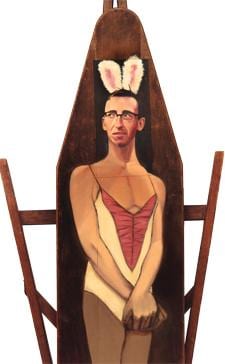
Permanently Pressed Wendy Sexsmith, visual artist Credit: Janet Rerecich photo
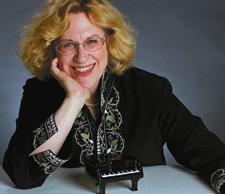
Crossing the Concourse Sara Davis Buechner in music and words Credit: Janet Rerecich photo
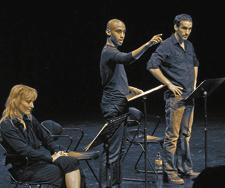
Clean Sheets Credit: Janet Rerecich photo
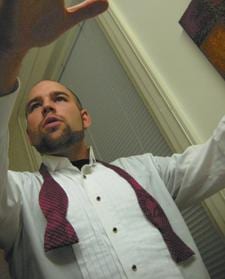
Queer Youth Choir Credit: Janet Rerecich photo
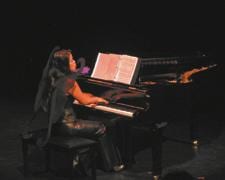
Queer Cabaret Credit: Janet Rerecich photo
In a cultural landscape punctuated by government funding cutbacks and defined by scarcity, there aren’t many spaces that celebrate, produce and support gay art.
Enter Vancouver’s three-year-old (and recently renamed) Queer Arts Festival, produced by the Pride in Art Society.
What began as a relatively quiet and unassuming visual art exhibit more than a decade ago officially morphed into a full-blown arts festival when Pride in Art’s board of directors added live performances to the bill four years ago.
The new direction was only temporarily forestalled by the city strike that shut down the Roundhouse Community Centre in 2007 and left the budding multidisciplinary festival homeless. But organizers bounced back the following year and have been drawing larger and larger crowds ever since, they say.
The increasingly popular Queer Arts Festival now runs alongside, and overlaps, the main Pride celebrations and features an innovative mix of visual art, live performance, music and theatre.
This year’s theme is Queertopia.
“The queer community’s achieved a lot in the last 20, 30 years,” says the festival’s associate producer, Jeff Gibson. “I came out in 1978 and it was a completely different world.
“We’ve achieved all these things, and you can’t let the ball drop,” Gibson continues. “So the idea is to pose questions about what is community for the queer community, and what does it mean?
“How do we define ourselves politically?
“Where do we go from here?”
Artists were asked to imagine the ultimate queer community: is it a place where heterosexuality is the exception, not the rule? Or have queers faded into the straight norm? Utopia or dystopia: what does Queertopia look like?
“Now that we’re acceptable, what do we do?” asks producing director Sean Cummings.
For Cummings, the purpose of art is to question everything.
The result is a diverse and innovative festival that celebrates, questions and pushes the boundaries of what it means to be queer.
Permanently Pressed
Wendy Sexsmith, visual artist
Having made her debut at the 2009 Eastside Culture Crawl, visual artist Wendy Sexsmith now brings her provocative series of oil paintings to the Queer Arts Festival.
Based on photographs taken at the Vancouver Pride parade, Permanently Pressed subverts the traditionally feminine domesticity of antique ironing boards by pairing them with portraits of nellie boys in burlesque dos and bunny tails.
The result is a darkly funny and playful series that captures Queertopia’s celebration of queer self-expression and exploration.
Set against the backdrop of hetero-normative social rules that don’t often encourage play, imagination or genderbending, the characters portrayed in Permanently Pressed resist conventional ideals of success and, in doing so, put forward the possibility of new ones.
“They’re not the typical image of success,” Sexsmith explains. “But they’re playing with that, and they’re ironically, extremely, self-aware. I just love to catch that gesture.”
The anchor piece, affectionately referred to as “Funny Bunny,” portrays a man in a ballet costume and rabbit ears.
“I love people in costume, especially when they’re having fun and playing with a role,” says Sexsmith. “These pieces are a celebration of people working to expand boundaries.”
Gallery hours: Weekdays 10am–10pm, Weekends 10am–4:30pm
Crossing the Concourse
Sara Davis Buechner in music and words
When 36-year-old David Buechner became Sara Davis Buechner in 1998, the acclaimed classical pianist risked everything. Coming out to family, friends and professional colleagues was fraught with pain and fear.
“The fact that most people know that I am a transgendered woman certainly cost me plenty in terms of a professional career and decent teaching positions in the United States,” Buechner says. “That had a great deal to do with my decision to move to the west coast of Canada, where I was greeted wholeheartedly and judged fairly on my record as a musician and as a teacher.”
Now living in Vancouver’s West End and married to her longtime female partner, Buechner is a piano professor at the UBC School of Music and frequently performs around the world.
“For 36 years, I lived my life wearing a mask and a heavy suit of armour. You cannot imagine how empowering it is to strip naked and shout from your gut: ‘This is who I am!’” Buechner says.
“I guess now, at age 50, I have a certain obligation to put myself out there as a role model… a duty to say to others in need: ‘Look, I’m alive, happy, working and respected, and the world has changed.’ So be yourself and assume the dignity we all deserve.”
Sara Davis Buechner. Fri, July 30, 7:30pm
Clean Sheets
To the envy of her Ontario friends, Deidre “D-Lishus” Walton will present the first full-length public reading of her new play, Inna di Wardrobe, as part of this year’s Clean Sheets series — the only event of its kind in Canada.
Produced by Vancouver’s Screaming Weenie Productions in conjunction with the Queer Arts Fest, Clean Sheets is unique in its support for up-and-coming and established queer playwrights.
The workshop series selects scripts from an open call then stages a dramatic reading of each, giving their authors a chance to see how their words are presented and received so they can refine their scripts accordingly.
This year’s Clean Sheets will also present dramatic readings of Galatea by Ottawa writer and actor Lawrence Aronovitch, and Turkey in the Woods by Vancouver actor, writer and mental health advocate Jan Derbyshire.
Walton drew on her own life experiences to write Inna di Wardrobe. The play tells the story of a Jamaican-Canadian lesbian who brings her lover home for the holidays and introduces her to the family for the first time.
“The food hits the fan, so to speak,” says Walton, herself a Jamaican-Canadian lesbian, dub poet and playwright.
With humour and love, the play looks at immigration, intergenerational family dynamics and dysfunction through a queer lens.
“It serves to debunk the stereotype of queerness as a white thing, and the idea that Jamaican people aren’t queer or aren’t allowed to be queer,” Walton says.
“The more, or the norm, is that Jamaicans aren’t gay. But when I was there a few weeks ago, there were lesbians everywhere. They’re busting out of the woodwork!”
Clean Sheets. Sun, Aug 8, 3pm and 5pm, Mon, Aug 9, 7:30pm
Queer Youth Choir
“Ten years ago, the idea of having a [queer] vocal ensemble was not even heard of,” says Kevin Zakresky. “It’s something I wish I had when I was younger.”
Now, at age 27 and in the midst of finishing his doctorate in choral conducting at Yale University, the new assistant director of Vancouver’s Chor Leoni men’s choir is directing the festival’s Queer Youth Choir.
The choir embodies Queertopia at its most inspiring: here’s a space that welcomes and celebrates queer youth to participate in an inclusive, queer-positive vocal ensemble whose members help choose the repertoire.
Members will take part in vocal workshops throughout the festival, concluding in a performance at the festival’s closing-night reception.
Last year, the choir sang Audrey Hepburn and musical theatre numbers. The best part, Zakresky says, is singing songs members like, in any register that feels comfortable — that’s not always encouraged in more traditional choral settings, where men and women are divided into traditionally gendered vocal registers, from soprano to bass.
“That’s the cool thing about this choir. Everyone just kind of uses the voice they have.”
Queer Youth Choir. Workshops Aug 9–13, Performance on Sat, Aug 14, 7pm
Queer Cabaret
Queer Cabaret promises to be one of the most anticipated nights of the festival.
The variety show-style revue features an exciting mix of performers of all stripes, many of whom will be accompanied on piano by the vivacious Karen Lee-Morlang, who produces and directs the cabaret.
“For so many of us queer artists, we don’t really have a venue to be ourselves, to be singing about music and subjects that we’re really passionate about,” she says. “It’s not just about featuring queer composers and compositions; it’s also being able to sing about being queer.”
Lee-Morlang recalls many instances in her career as a musician when she’s seen performers sacrifice their own identities for the characters they inhabit onstage.
“You’ll find that most actors, singers and musicians — especially when you’re onstage — you’re kissing someone who you wouldn’t normally kiss,” she says. “With cabaret, we can be utterly ourselves. It’s incredibly liberating.”
Queer Cabaret. Sat, Aug 7, 7:30pm.
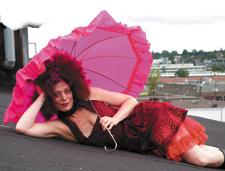
 Why you can trust Xtra
Why you can trust Xtra


